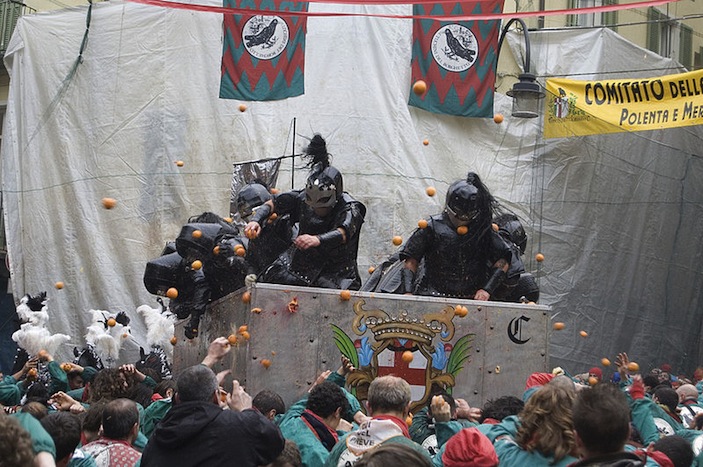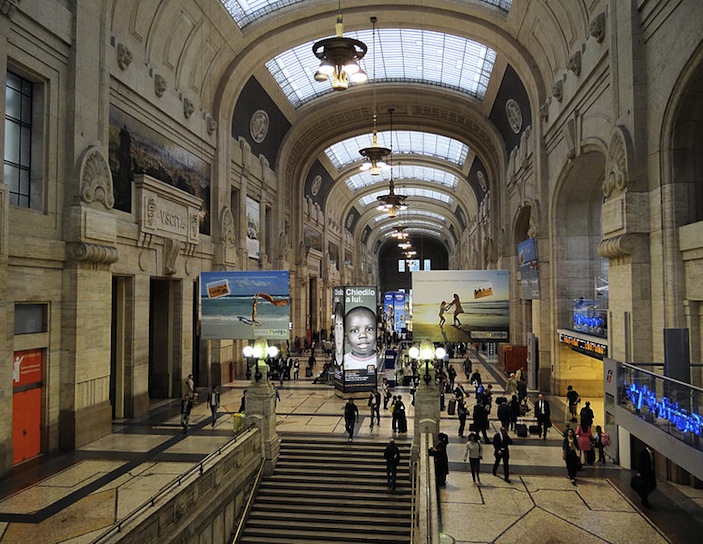IDroma: Why Italy Makes No Sense
Italy is romantic, sure. But Italy is far too romanticized, too.
While the Italy virgin surely holds hopes of evening strolls along calm waterways, perhaps stealing a kiss or two in the shadows of the Colosseum, or luxury shopping down Via Montenapoleone, to enjoy these things, it is almost comical the number of inconveniences that Italians seem to intentionally bestow upon foreign visitors.
Maybe it’s Italian pride, I don’t know. But I don’t possibly understand how urban planners, politicians, and the like can even fathom some of the design elements of Italy’s infrastructure that just make it impossible to navigate.
I’m no inexperienced traveler, either, by any stretch. With 43 countries under my belt, including four previous visits to this very country, I tend to be pretty street smart. I often rely on public transportation, I have a good sense of the layout of a city from just a quick glance at a map, and I manage to find my way. And yet in my last visit, which consisted of just 16 hours, I encountered not one, not two, and not three, but four massive inconveniences.
First, there is an express bus from Roma’s Fiumicino International Airport to Vatican City and Termini Station. Apparently. Despite having no fewer than 50 massive advertisements plastered throughout the arrivals area, finding the stop for it is virtually impossible. While it says “Bus Station No. 1” on the advert, it does not specify any operating hours, and does not give any additional instructions as to where this supposed Station No. 1 is. And when you follow the signs within the airport, the one that says “Shuttle” refers to a within-the-airport shuttle (despite the Express bus to Termini being called “Shuttle” as well). So upon that failure, I walked down to the “Local Bus Station,” only to find distance buses most of which do not go to Roma. The ones that did specify Roma on the departure screen were for the next day, and it was only about 23:00 at the time.
Upon making it on Trenitalia from Fiumicino to Roma Tiburtina Station, the timetable for the Metro specified that the last train leaves just after midnight. I was there about 10 minutes prior to that, only to find a roped off entrance area. This made me depend on a taxi, who typed my address into his GPS. I saw the route pop up, which was just two stops and about five minutes on the Metro, and it was about 3km away. About 20 minutes and 15 turns later, I arrived at my destination—with a 17 euro charge. I screamed at the man in English which he didn’t understand for driving me in a circle, making wild gestures, so he knew I had been here before, and he agreed to 10 euro, which I paid and left. Just expect it—if you don’t speak Italian, you will get ripped off by a taxi driver. If you don’t, it’s your lucky day. In my case, it was just funny that he insulted my intelligence by typing the address into the GPS, and continuously ignoring the suggested route as I watched the machine recalculate, and recalculate, and recalculate. He probably should have made sure I couldn’t see that, anyway, and may have gotten a few more euros out of me.
Fast-forward to the next day. I went to enter the Metro for the two-stop ride over to Tiburtina to catch a 14:03 train back to Fiumicino. When I was near the station, I realized I forgot something important at my friend’s flat, and literally sprinted back, about 800m, to grab it. I got on the Metro, and arrived at Tiburtina station at about 13:57…a semi-comfortable 6 minutes to make the connection. Except that at Tiburtina, as you exit the Metro, the overground trains are one direction, and the only place in the entire station you can purchase Trenitalia tickets is the other direction. Without a sign informing you of that, of course. So in my instinct, I just left Metro and walked towards my track platform, passing about 200m of wide-open hallway. And not a single automated ticket machine. In Italy, you cannot purchase tickets on board, either….so my only option to avoid a 100 euro penalty was to run back past the Metro, to the other side of the station where the ticket booth was. I saw a bank of about 20 automated machines, and was just dumbfounded why they could not put a single one of those machines either at the Metro exit, or in the direction of the train platforms.
I honestly believe that Italians do things this way just to laugh at foreigners…but that’s just my two cents.
.jpg)




